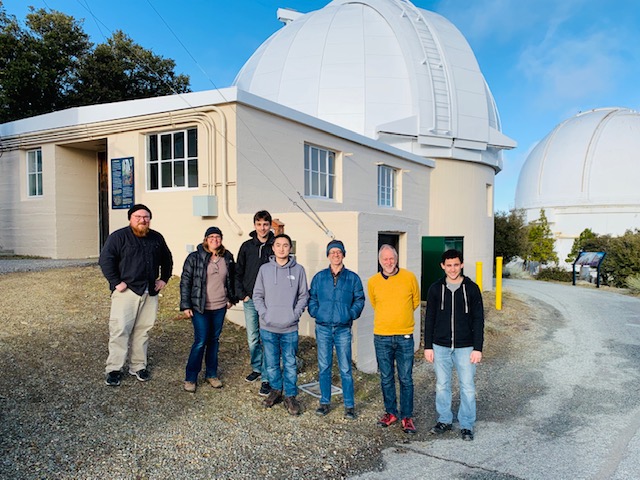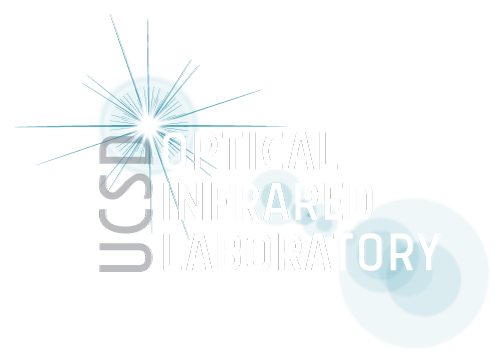Synchronous observations of CALIPSO with PANOSETI and VERITAS
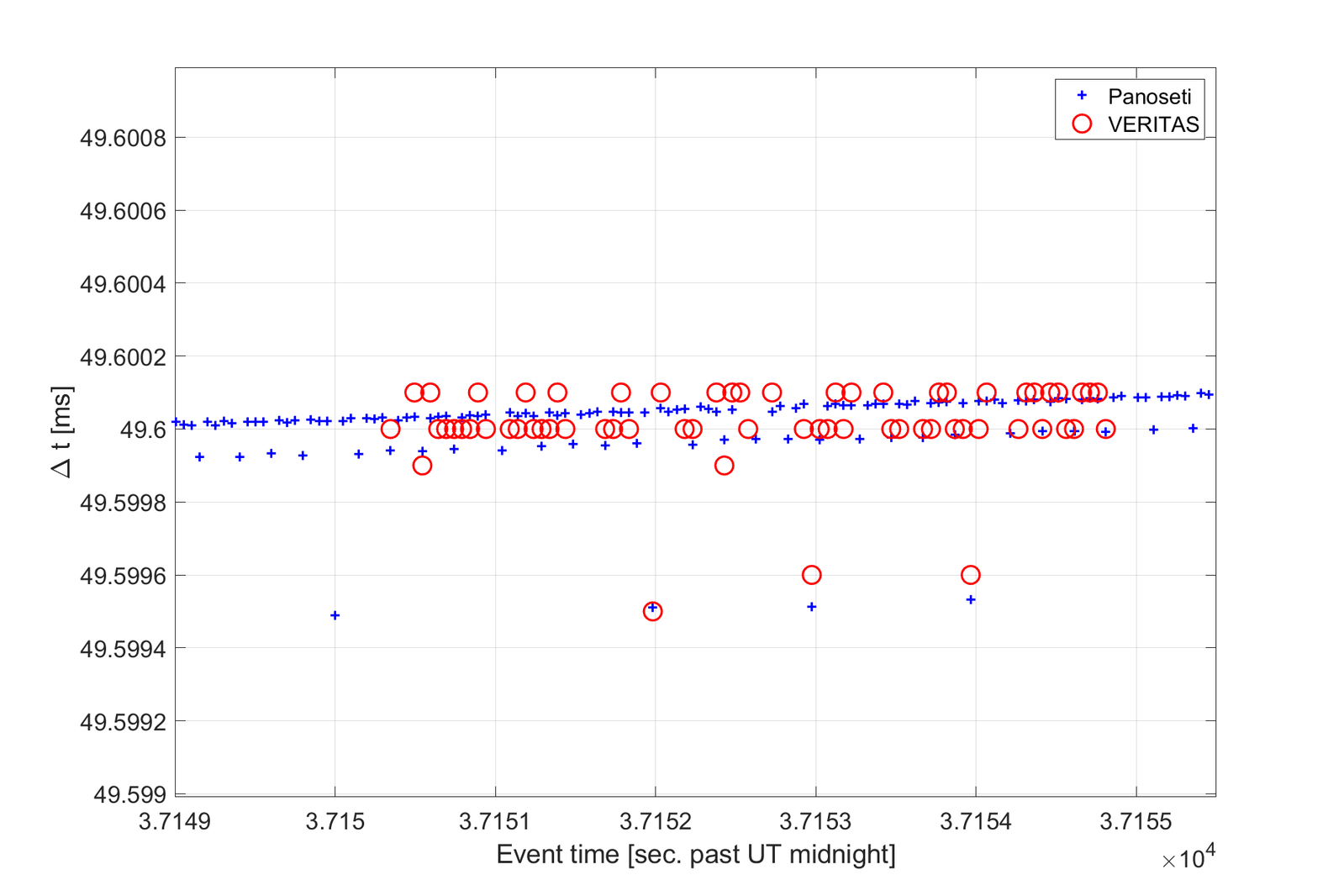
November 6th 2021
CALIPSO satellite (NASA/CNES Cloud-Aerosol Lidar and Infrared Pathfinder Satellite) was observed simultaneously with the two PANOSETI telescopes and with the four VERITAS Gamma-ray telescopes, at VERITAS observatory on November 06th 2021. This satellite is sending repeated short optical pulses at a rate of 20.16Hz that are easily detected with PANOSETI (peak intensity at ~250 pe). This satellite signal was used by PANOSETI as an on-sky calibrator to confirm timing synchronicity and accuracy by comparing timestamps of each CALIPSO detected pulse with observations made by VERITAS.
PANOSETI conducts coordinated observations with Veritas Observatory
November 4th-8th, 2021
The PANOSETI team performed 4 nights of simultaneous observations with the Veritas Gamma-ray Observatory in Arizona. Coordinated nano-second observations of CALIPSO (LIDAR satellite), Crab Pulsar, and other exciting targets were performed. Pictured here are two PANOSETI 0.5-m telescopes with one of the behemoth 12-m Veritas telescopes. Observations were done by Prof. Jamie Holder (U. Delaware), James Wiley (UCSD), and Dr. Jerome Maire (UCSD).
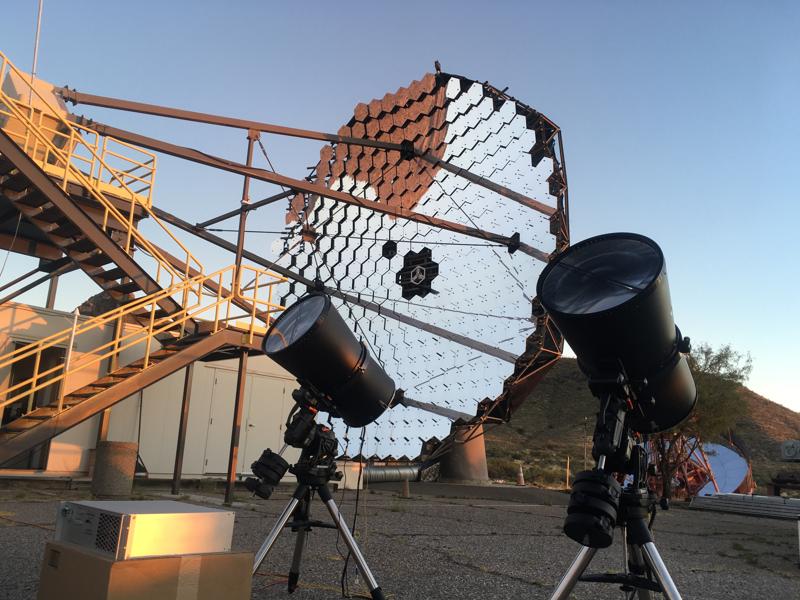
PANOSETI Team Meeting at UC San Diego
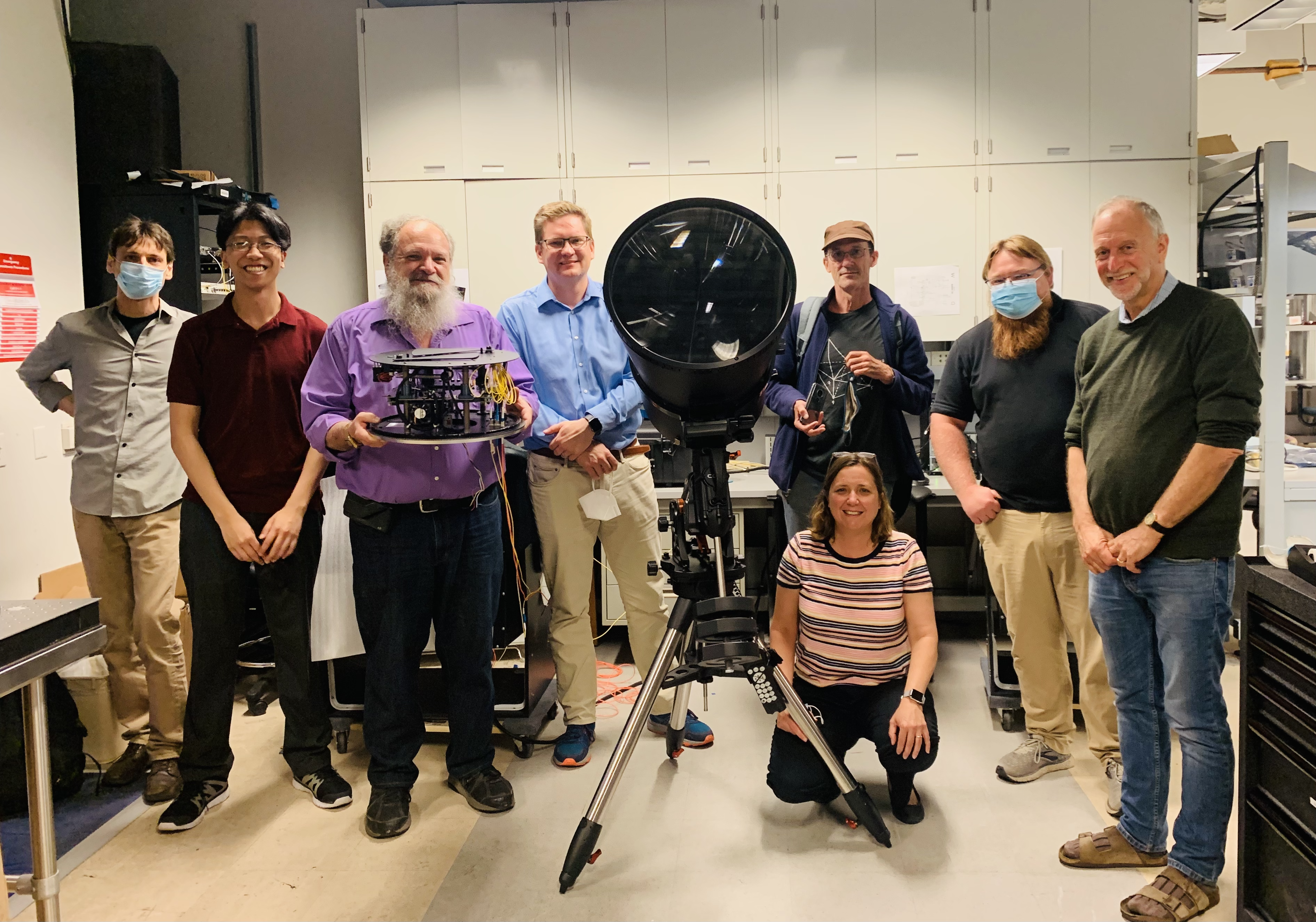
July 1, 2021
The PANOSETI team connects in-person for a two day working meeting at UC San Diego. Team members finally got to see the PANOSETI production telescope (0.5 m) and back-end electronics and detectors package in its final assembly. Left-to-right: Jerome Maire (UCSD), Ryan Lee (Berkeley), Franklin Antonio (Qualcomm), Andrew Howard (Caltech), David Anderson (Berkeley), Shelley Wright (UCSD), Aaron Brown (UCSD), Dan Werthimer (Berkeley). Paul Horowitz stepped out briefly when we spontaneously snapped this picture (with no masks).
Observations of CALIPSO with PANOSETI
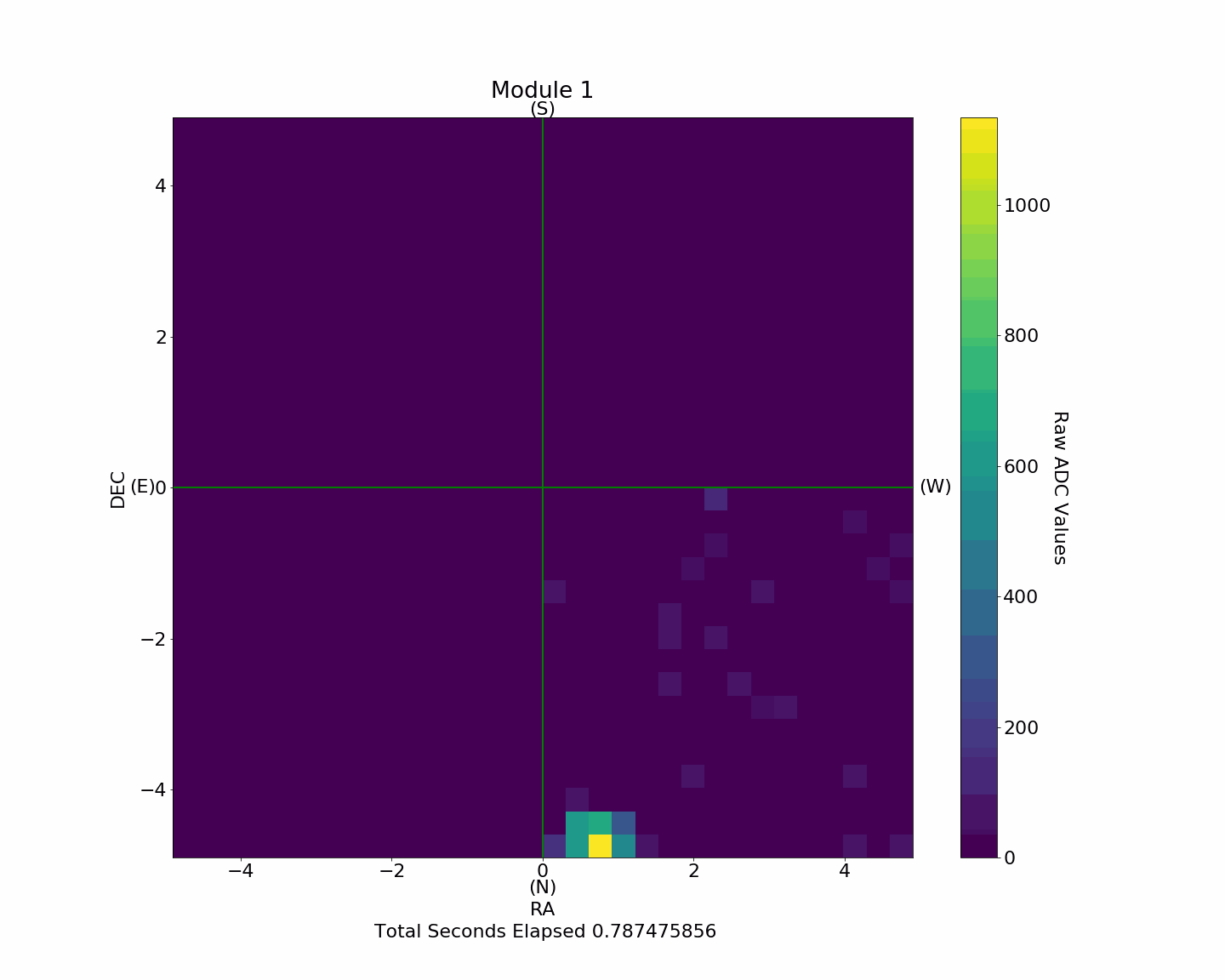
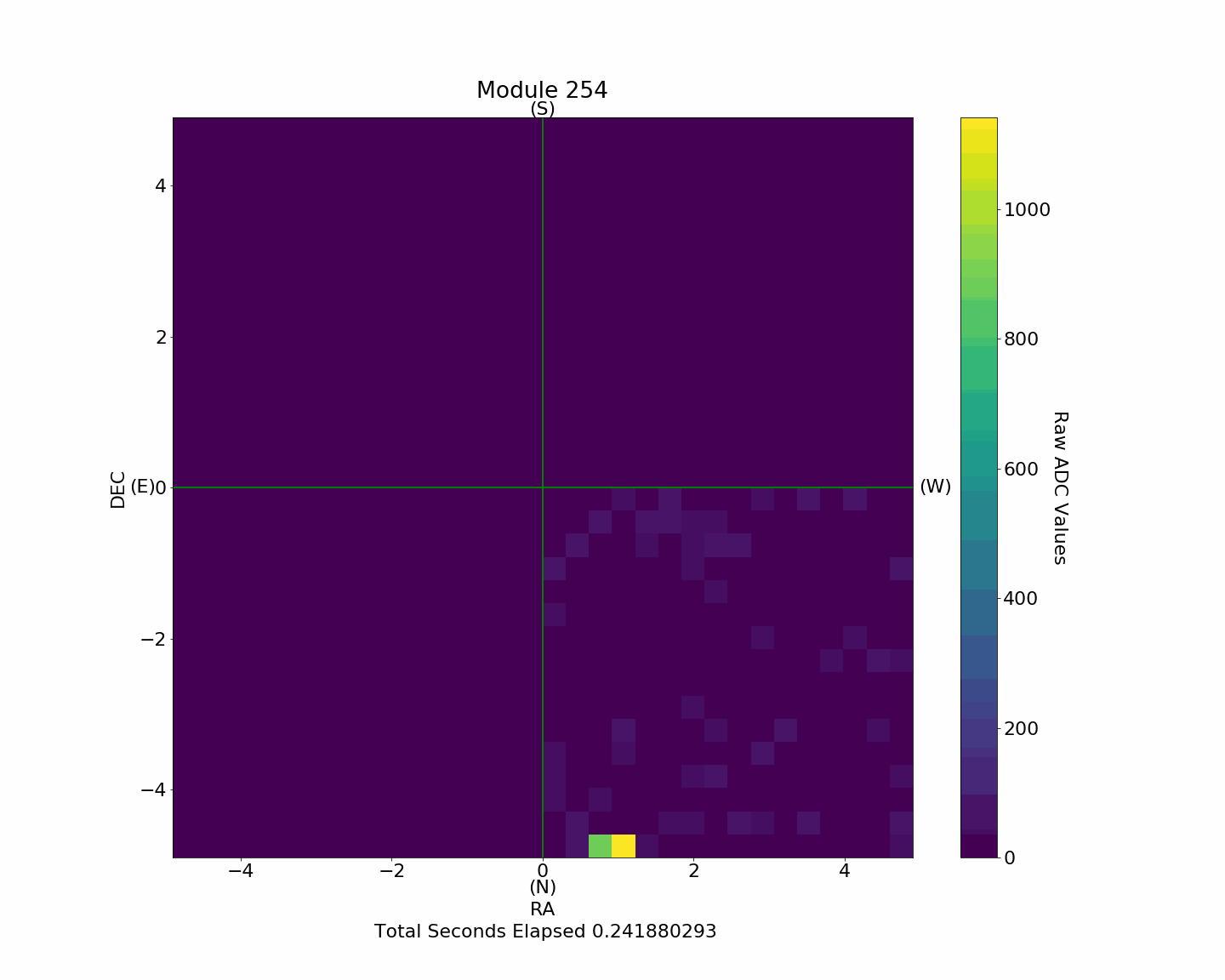
May 29th 2021, Sept. 08 2021
CALIPSO satellite (NASA/CNES Cloud-Aerosol Lidar and Infrared Pathfinder Satellite) was observed simultaneously with the two PANOSETI telescopes at Lick observatory on May 29th 2021 and Sept. 08 2021 at ~87 degrees elevation. This satellite is sending repeated short optical pulses at a rate of 20.16Hz that are easily detected with PANOSETI (peak intensity above 1,000 ADC). This satellite signal is used by PANOSETI as an on-sky calibrator to confirm timing synchronicity.
PANOSETI Prototype Observations at Palomar Observatory
October 8, 2020
Jerome Maire and Shelley Wright brought two of the PANOSETI prototype telescopes to Palomar Observatory for on-sky characterization. Both telescopes were separated each by 1km and connected with a single-mode fiber to offer nanosecond precision timing of events between the two telescopes. It was a successful observing run!
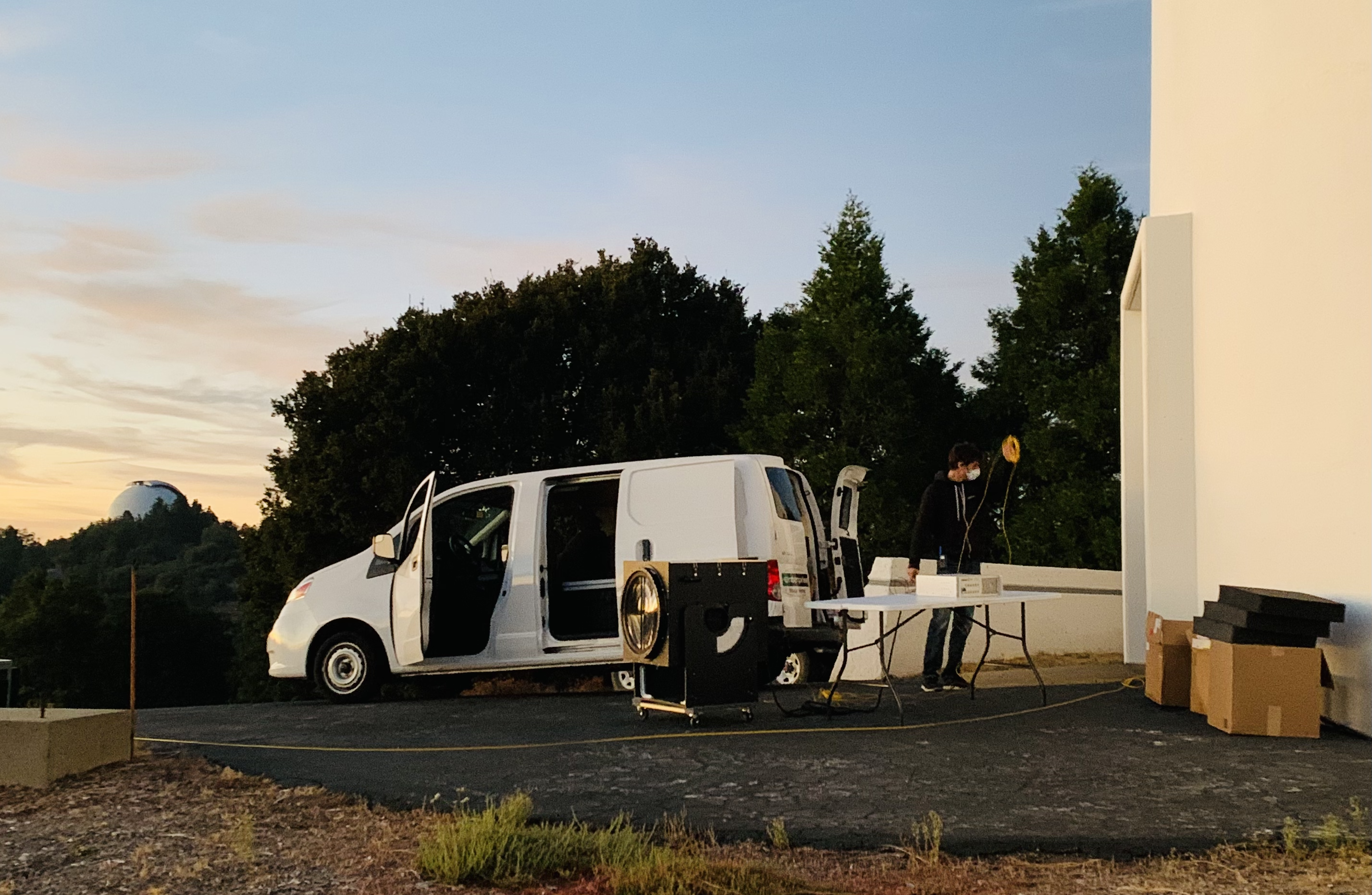
PANOSETI upgrades complete in the Lick Astrograph Dome
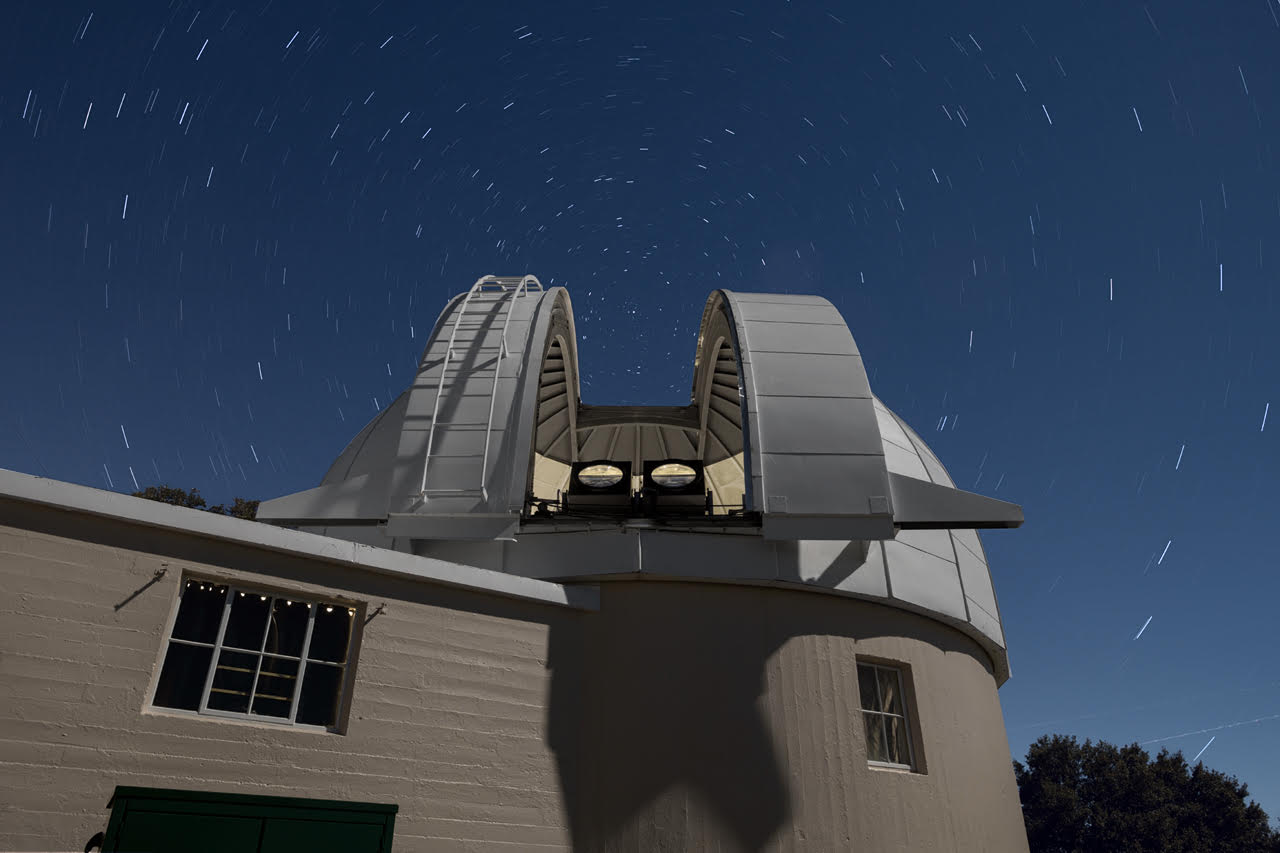
February 7, 2020
The two PANOSETI telescope that were installed last month were upgraded with the latest software and detector readout boards. The commissioning team was honored to have Photographer Laurie Hatch arrive to take this beautiful picture showing the telescopes newly installed in the Astrograph Dome. Polaris is perfectly centered above the telescopes with circumpolar star trails easily seen.
PANOSETI telescopes installed in Lick Observatory Astrograph Dome!
January 14, 2020
The team installed two PANOSETI 0.5-m telescopes in the Astrograph dome to commence a wide-field optical SETI search and continue our prototyping designs for the full observatory concept. Picture: team outside Astrograph during sunset on January 14, 2020 (left to right: Aaron Brown, Shelley Wright, Jerome Maire, Wei Liu, Rick Raffanti, Dan Werthimer, and James Wiley.
